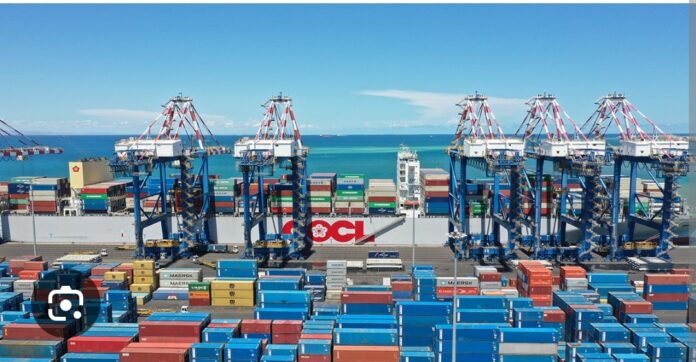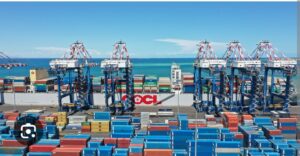The joint venture company, Djibouti Container Terminal (DCT), between Djibouti owned port and Dubai owned DP World (DPW) started off with high hopes and expectations. However, as time went on, tensions began to rise between the two partners, leading to a dispute that would ultimately end up in arbitration or in a court.
The initial agreement between Djibouti and DPW stipulated that DPW would manage the terminal, with all extensions and new ports requiring DPW’s consent. DPW also guaranteed 1500 monthly twenty-foot equivalent units (TEU). Djibouti port owns 66+% of the company, while DPW owns 33+%, with the head office located in Dubai. The arbitration court was designated to be in London, with the final deciding court being in Djibouti.
Dispute arose when Djibouti was not satisfied with the management of the terminal and the target of 1500 TEU was not being met. Additionally, DPW was found to be engaged in activivties discouraging clients from using Djibouti port for the purpose of maintining the regional monopoly of Dubai port. The necessity for expansion became evident, and Djibouti port invited DPW to participate in financing a new multipurpose port. However, DPW declined and instead took over the management of ports in Aden and the Red Sea, Saudi Arabia.
When Djibouti attempted to renegotiate the contract to favor development, DPW declined the offer. Djibouti kickef off the project with the participation of China Merchent Co at 23%. This move led to a serious dispute, wich prompted DPW taking the case to the arbitration court in London, who ruled in their favor. Djibouti then invited DPW to report the case to the Djibouti court for a final decision, but DPW refused and continued to pursue legal action in other courts worldwide.
The situation escalated when Djibouti offered DPW the options; to either report to the Djibouti court, negotiate a separation agreement, or voluntarily quit the company. DPW rejected these offers and instead contracted with Somali ports, threatening to shut down all ports in Djibouti.
Then the Republic of Djibouti took a souvereign decision dissolving the company(DCT), founding a 100℅ Djiboutien new company ( STGD ) and transfering all assets and rights to the new company with communication to DPW, that all rights of DPW are fully guaranteed and assured.
Cries of Ethiopian prime minister claiming the right to get a souvereign outlet to the dea were herd which culminated in the controverdial MoU signed in Addis Ababa 1st January, 2024.
There were already suspicions that Dubai was behind the Ethiopian initiative to be involved in the costs and ports next to Djibouti, potentially aiming to jeopardise Djibouti’s economic interests.
Taking into account the economic and political environment of Ethiopia and the legal dimentions of the MoU, and verbal threats of the DPW director, we remain adamently confident that a financially able partner is on the back seat. UAE will conceivably appear in the forefront.
It is evident that the dispute between Djibouti and DPW has escalated to a point where diplomatic and legal avenues have been exhausted. The refusal of DPW to seek the Djibouti court’s final decision and their continued efforts to undermine Djibouti’s ports have strained the relationship between the two partners. The aggressive actions taken by DPW, such as contracting with Somali ports and threatening Djibouti’s ports, have created a hostile environment that may have lasting consequences for the region.
In conclusion, the Djibouti Container Terminal (DCT) joint venture between Djibouti owned port and Dubai owned DP World (DPW) has faced numerous challenges and disputes that have strained their partnership. The refusal of DPW to engage in diplomatic resolutions and their aggressive actions have escalated the situation, leading to potential economic and political consequences for both. It is essential for both parties to come to a resolution that benefits all stakeholders and avoids further escalation of tensions in the region.
————————
The views and opinions expressed are soley the responsibility of hoaeditor and do not necessarily reflect the views of Djibouti ports.





